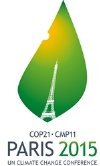Social Watch News
Published on Mon, 2016-02-01 11:46
The Least Developed Countries (LDCs) are truly the battleground on which the United Nation's Sustainable Development Goals (SDGs) will be won or lost, and the rural areas in the LDCs are the front-line of the battle, the Secretary-General of the United Nations Conference on Trade and Development (UNCTAD) has said. In his statement at the sixty-second executive session of UNCTAD's Trade and Development Board (TDB) on Monday, the UNCTAD head, Dr Mukhisa Kituyi, said that this first executive session of 2016 comes at a paradoxical moment for the international community. |
|
Published on Mon, 2016-02-01 09:46
» |
Published on Tue, 2016-01-19 12:45
Owners, executives and managers of some prominent companies actively participated in the human rights violations committed against workers during Argentina’s 1976-1983 dictatorship, according to the report “Business responsibility in crimes against humanity: The repression of workers during state terrorism.” (available in Spanish) The report, laying out evidence of such violations, was recently released by Argentine human rights organization the Center for Legal and Social Studies (CELS, according to its acronym in Spanish), the Area of Economy and Technology of the Latin American Faculty of Social Sciences (FLACSO-Argentina), and the Truth and Justice Program and Human Rights Secretariat – both of which belong to the Argentine Ministry of Justice and Human Rights. |
Published on Wed, 2016-01-06 09:33
The Thai government announced, mid-2015, a policy on child support providing grants for poor families. A monthly allowance of 400 baht per child will be given to children born between 1 October 2015 and 30 September 2016. The Ministry of Social Development and Human Security anticipates that about 135,768 new-born babies will be covered once the program is completed. Civil society wants social security to be recognised as a right and warns that the complexities of poverty and inequality in a changing society need to be better understood. |
|
Published on Mon, 2015-12-21 12:53
» |
Published on Mon, 2015-12-21 10:24
The Paris Agreement, under the United Nations Framework Convention on Climate Change (UNFCCC), was finally adopted evening of Saturday, 12 December, after four years since the launch of the process to develop the legal instrument under the Ad hoc Working Group under the Durban Platform for Enhanced Action (ADP). The adoption of the Agreement was heralded as "historic" by President of the 21st meeting of the Conference of Parties (COP21) to the UNFCCC, French Foreign Minister Laurent Fabius, as well as several countries that spoke at the final plenary. |
Published on Wed, 2015-12-16 10:35
The Paris deal recognises the reality of the climate threat, but only takes us part of the way. Climate change is already destroying lives and livelihoods with more than 2.6 million people displaced by extreme weather events and changing seasons. This will only get worse. The Paris decisions acknowledge the challenges and move global action forward, but while the Summit conclusions refer to the target of a 1.5-degree limit, the capacity to leverage ambition on the scale required to stabilise the planet is still a question for the future. |
Published on Fri, 2015-12-11 19:03
Last summer, the international civil society network Fair Finance Guide International (FFG) launched its report on Transparency and Accountability in the Financial Sector. The report examined key aspects relating to transparency and accountability, and to reporting about tax related issues, as they apply to 47 banks in the seven countries where FFG is active. The report assessed and scored the 47 banks on their transparency and accountability by looking at four key aspects: publication of policies and risk management; disclosure of investments; reporting on engagement with companies and voting behaviour; and stakeholder dialogue. The report also scored those banks on their transparency on tax-related issues, including the extent to which they provide detailed, country-by-country information on key indicators on transparency and tax. |
Published on Fri, 2015-12-11 19:00
“The final Paris Agreement is a nail in the coffin for justice for LDCs”, said Azeb Girmai, climate lead for LDC Watch, the platform of civil society organisations in Least Developed Countries (LDCs). “We have gradually seen the text change from the long-standing ‘polluter pays principle’, where developed countries are obliged to finance adaptation and mitigation to help developing countries deal with climate chaos to one where the wealthiest countries simply refused to commit any climate finance. In the final agreement, “new and additional” climate finance committed in the 1992 Convention has now been dropped out”. |
Published on Wed, 2015-12-09 18:39
Philanthropic foundations such as the Bill & Melinda Gates Foundation and the United Nations Foundation have seconded their staffers to top management positions at the World Health Organization. A UN Foundation staffer was placed in the office of the Director-General Dr. Margaret Chan as senior strategist (D1 level) for a 24-month contract this year. One Gates Foundation staffer is seconded at P5 level as manager of program operations and cluster management at the Polio and Emergencies Cluster. |
SUSCRIBE TO OUR NEWSLETTER









